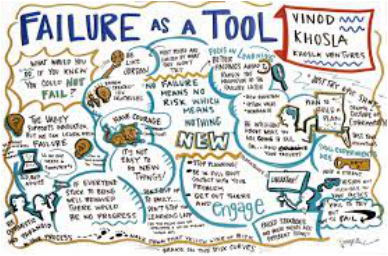|
When I was in elementary school, I loved receiving little sticker stars when I did well on a math test or spelling bee. I was also shattered when I was told I was weak in spatial reasoning. But do gold stars and “Well done!” comments really help us learn? And how can we stop kids from giving up on ‘weak’ areas? Salman Khan, founder of the Khan Academy, recently posted an article about his son’s adventures with reading, and why he will never tell his son he is smart. Rather than congratulating him when he succeeds with words he already knows, Khan praises him when he struggles through a new word; when he perseveres. This approach that Khan is putting into practice, of rewarding persistence rather than right answers, reflects research from Stanford psychologist Carol Dweck. Dweck has studied the ‘growth mindset’ for decades and explains the difference between a growth mindset and an opposing fixed mindset: In a fixed mindset students believe their basic abilities, their intelligence, their talents, are just fixed traits. They have a certain amount and that's that, and then their goal becomes to look smart all the time and never look dumb. In a growth mindset students understand that their talents and abilities can be developed through effort, good teaching and persistence. They don't necessarily think everyone's the same or anyone can be Einstein, but they believe everyone can get smarter if they work at it. The idea, then, is to encourage students to keep at it with problem solving, to not give up, and to be allowed to really learn from mistakes rather than avoid them. This doesn’t sound much different than what creativity experts or entrepreneurs may tell us, as the infographic from Vinod Khosla (founder of Sun Microsystems) demonstrates above.
As straightforward and obvious as it may seem, many of us adults don’t really encourage a growth mindset in the feedback we give people. A couple examples from a fellow blogger: Just saying “Good job!” or “You don't know how to use semi-colons” isn’t as useful as more specific, growth oriented feedback. Instead, saying "I can really see effort in your revision" or "You haven't mastered semi-colons yet" encourage process and suggest growth and mastery. Apart from the fact that nobody really masters the use of semi-colons (The Oatmeal calls them "the most feared punctuation on earth"), encouraging this mindset does take more patience, and a bit more effort. In the long run though, we will have people more inclined to not give up on their learning - seems like a pretty good payoff to me. For now, I’m going back to my grade 3 self and telling her: “You haven’t mastered spatial reasoning… YET!” There is still hope! *Bonus* Tips from the Oatmeal on semi-colon use: http://theoatmeal.com/comics/semicolon
0 Comments
Leave a Reply. |
Categories
All
AuthorA passionate educator.. on a quest for a schooling model to love! Archives
August 2017
|


 RSS Feed
RSS Feed
